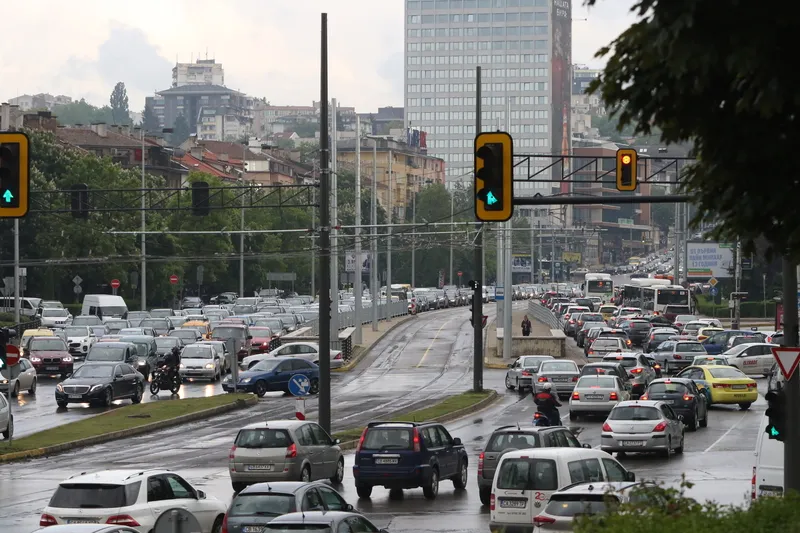A new report from insurance firm Allianz highlights the appalling risks to road users resulting from drink driving. "On a global level, every 10th fatal accident can be traced back to alcohol. Men are more likely to expose themselves to this danger, risking their lives with it," according to Christoph Lauterwasser, Head of the Allianz Center for Technology (AZT) in Munich.
The fatality rates from road traffic crashes that have resulted from alcohol use have been investigated by the World Health Organisatio
December 15, 2014
Read time: 3 mins
A new report from insurance firm 3924 Allianz highlights the appalling risks to road users resulting from drink driving. "On a global level, every 10th fatal accident can be traced back to alcohol. Men are more likely to expose themselves to this danger, risking their lives with it," according to Christoph Lauterwasser, Head of the Allianz Center for Technology (AZT) in Munich.
The fatality rates from road traffic crashes that have resulted from alcohol use have been investigated by the3263 World Health Organisation (WHO). An analysis of this data has been carried out by Allianz and shows significant regional differences. Eastern Europe and Central Asia suffer particularly high levels of road crashes due to alcohol use amongst drivers with 18.2%. The average for the rest of Europe is 16.7%, while for the Americas the average is 12.9%. Meanwhile in Africa, 8% of crashes are caused by alcohol use, while for the Asia Pacific region the figure is 7.3% and for the Middle East the average is 2.4%. The global average figure is 10.9%.
The countries with particularly high risks for road fatalities from alcohol use are Belarus with 51.4%, Lithuania with 48.2%, Venezuela with 47.1%, Namibia with 43.2%, Mongolia with 20.7% and the United Arab Emirates with 17.7%. Within Europe, Sweden and the UK suffer less from drink driving, while France and Portugal have seen major improvements due to the introduction of much tougher enforcement and penalties for offenders in recent years. But it is worth noting too that while the Middle Eastern countries as a rule do not have major problems from drink driving due to religious beliefs forbidding many from alcohol use, the overall risks from poor driving are still very high.
The research also shows that in most countries, men are twice as likely to be involved in fatal, alcohol-induced road accidents as women. The Allianz report shows that this also applies in Germany: while 12.4% of fatal accidents involving men are down to alcohol consumption, the figure lies at 4.9% for women.
Young German drivers aged 21-24 are more frequently involved in crashes caused by drink-driving, as revealed by the Allianz study. Up to 18% of crashes for this age group are due to alcohol use, compared with 11% for those aged 25-64 groups. "Alcohol consumption and a larger risk appetite in young people are the main causes for these high accident rates", Lauterwasser said. "For this reason, Allianz is calling for the maximum age for the zero-alcohol-limit legislation in Germany to be raised from 21, as it currently stands, to 24."
In addition, more frequent police controls and higher fines are an important factor when it comes to fighting drink-driving. Evidence of this issue can be seen from Belgium, with its significantly higher rate of drink-driving and road fatality risk than neighbouring France, Germany and the Netherlands. Both enforcement of road laws as well as penalties for offenders are more lax than in any of its neighbours.
The fatality rates from road traffic crashes that have resulted from alcohol use have been investigated by the
The countries with particularly high risks for road fatalities from alcohol use are Belarus with 51.4%, Lithuania with 48.2%, Venezuela with 47.1%, Namibia with 43.2%, Mongolia with 20.7% and the United Arab Emirates with 17.7%. Within Europe, Sweden and the UK suffer less from drink driving, while France and Portugal have seen major improvements due to the introduction of much tougher enforcement and penalties for offenders in recent years. But it is worth noting too that while the Middle Eastern countries as a rule do not have major problems from drink driving due to religious beliefs forbidding many from alcohol use, the overall risks from poor driving are still very high.
The research also shows that in most countries, men are twice as likely to be involved in fatal, alcohol-induced road accidents as women. The Allianz report shows that this also applies in Germany: while 12.4% of fatal accidents involving men are down to alcohol consumption, the figure lies at 4.9% for women.
Young German drivers aged 21-24 are more frequently involved in crashes caused by drink-driving, as revealed by the Allianz study. Up to 18% of crashes for this age group are due to alcohol use, compared with 11% for those aged 25-64 groups. "Alcohol consumption and a larger risk appetite in young people are the main causes for these high accident rates", Lauterwasser said. "For this reason, Allianz is calling for the maximum age for the zero-alcohol-limit legislation in Germany to be raised from 21, as it currently stands, to 24."
In addition, more frequent police controls and higher fines are an important factor when it comes to fighting drink-driving. Evidence of this issue can be seen from Belgium, with its significantly higher rate of drink-driving and road fatality risk than neighbouring France, Germany and the Netherlands. Both enforcement of road laws as well as penalties for offenders are more lax than in any of its neighbours.






